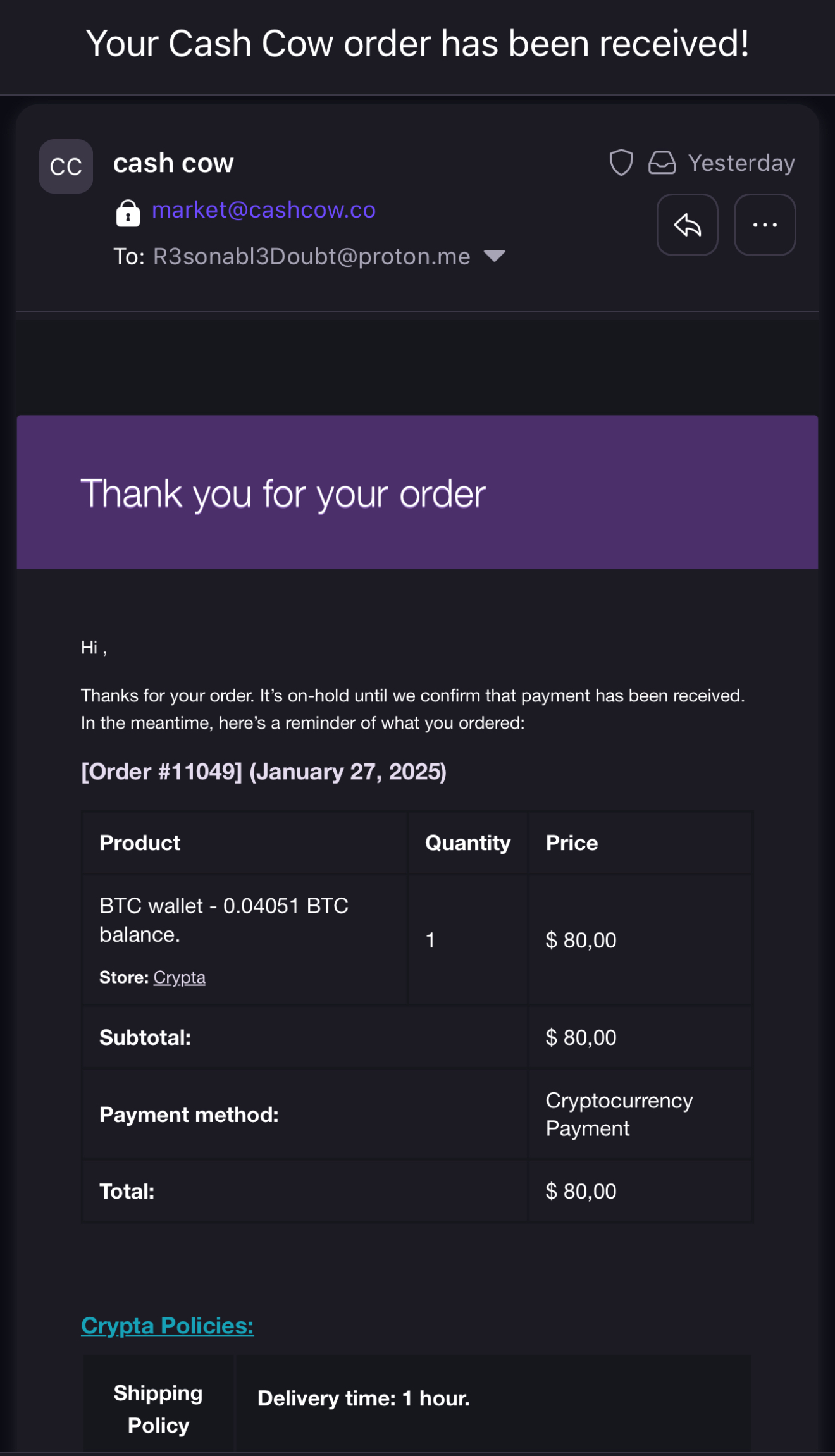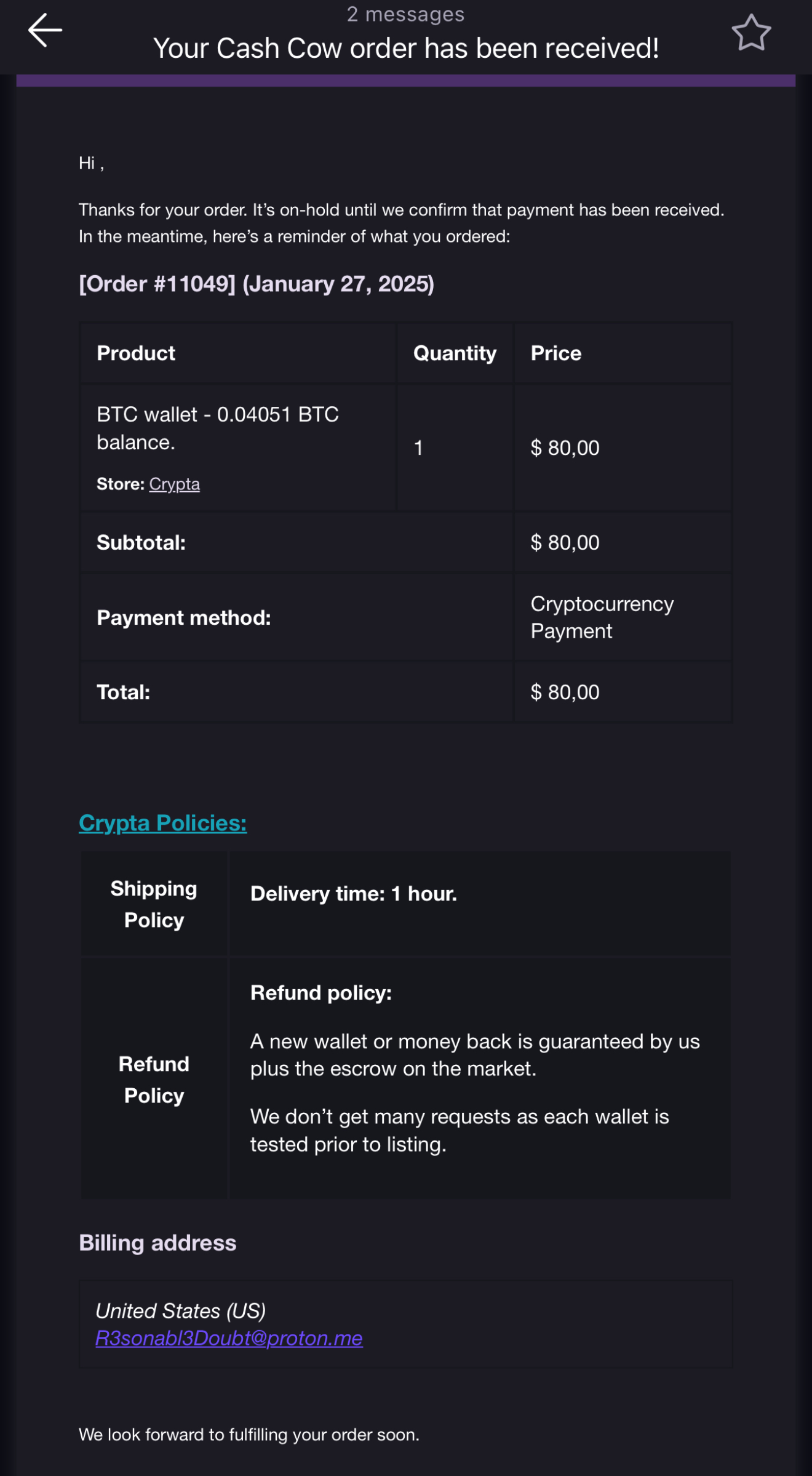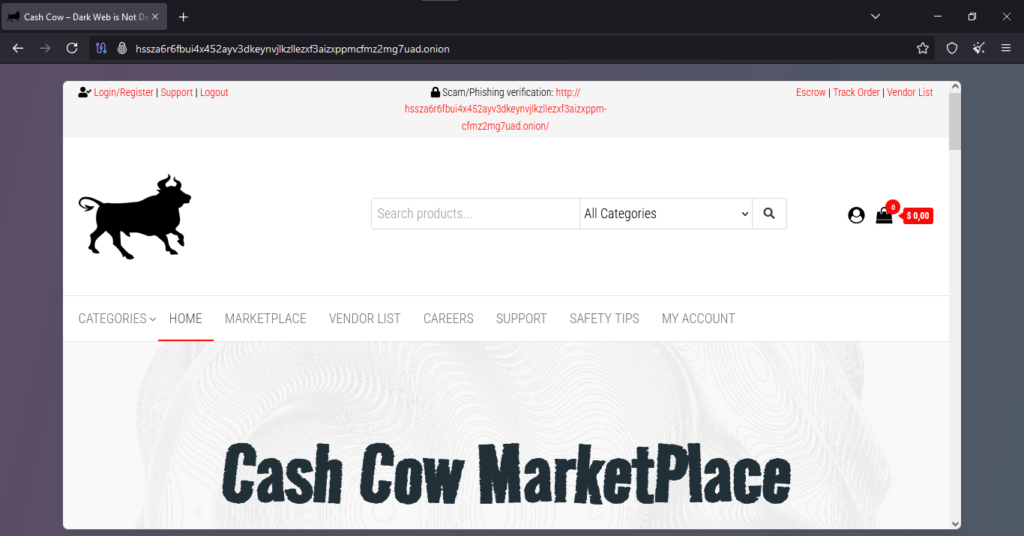Table of Contents
ToggleCash Cow – TOR Scam Report (140)
Onion Link : http://hssza6r6fbui4x452ayv3dkeynvjlkzllezxf3aizxppmcfmz2mg7uad.onion/
Scam Report Date : 2025-01-27
Client Scam Report Breakdown
Original Scam Report :
The client submitted a report regarding Cash Cow MarketPlace, an online platform that claims to have been operating since 2015. According to the report, the marketplace asserts that all vendors must undergo “certification tests”, which include product sampling both at the start of their cooperation and at random intervals. While these statements may seem to suggest a secure and well-regulated platform, they also raise concerns about deceptive marketing tactics commonly used by fraudulent online marketplaces. The legitimacy of Cash Cow MarketPlace’s claims should be examined closely, as similar darknet markets have made comparable promises in the past, only to be exposed as scam operations where vendors engage in fraud, product sampling does not actually occur, and buyer protections are non-existent.
Photos :


2. Defining Terminology and Terms
Several terms in the scam report need further clarification. Deep web marketplaces are online platforms that operate outside traditional search engines, often requiring specialized software, such as Tor, to access. These marketplaces frequently sell illicit goods and services, making them high-risk environments for scams. The claim that Cash Cow MarketPlace is “100% safe” is a red flag, as no online marketplace, especially one operating in an anonymous setting, can guarantee complete security. The mention of vendor certification tests and product sampling suggests that the marketplace attempts to legitimize itself by portraying vendors as vetted professionals. However, this is a common scam tactic, as fraudulent marketplaces frequently make similar claims while allowing vendors to disappear with buyers’ funds. The mention of FULL Escrow is particularly important, as escrow systems are supposed to hold funds until a transaction is completed. However, in scam operations, escrow can be manipulated or entirely nonfunctional, allowing marketplace administrators or vendors to steal funds under the guise of security. The claim of a “buyer protection system” is another trust signal that scam marketplaces often use to convince users they are not at risk, even when no real protection exists.
3. Contextualizing the Scam and Its Implications
This scam report sheds light on the common fraudulent strategies employed by deep web marketplaces to appear legitimate while engaging in deceitful practices. While Cash Cow MarketPlace claims to have operated since 2015, many scam marketplaces falsely advertise long operational histories to gain credibility. The mention of vendor verification and escrow protection is meant to reassure buyers, but in many cases, these systems are either completely fabricated or selectively enforced to facilitate scams. If multiple users report issues with transactions—such as vendors failing to deliver goods, funds being withheld in escrow, or sudden marketplace shutdowns—this would indicate a broader exit scam operation. Buyers engaging with such marketplaces should exercise extreme caution, as anonymous platforms provide little to no recourse in the event of fraud. The presence of over-the-top security claims, combined with the lack of external verification, suggests that Cash Cow MarketPlace may be engaging in deceptive marketing to lure in victims. Reports like this one serve as a critical warning, emphasizing the importance of conducting thorough research before engaging with unverified online marketplaces that make sweeping claims of security, anonymity, and buyer protection.






